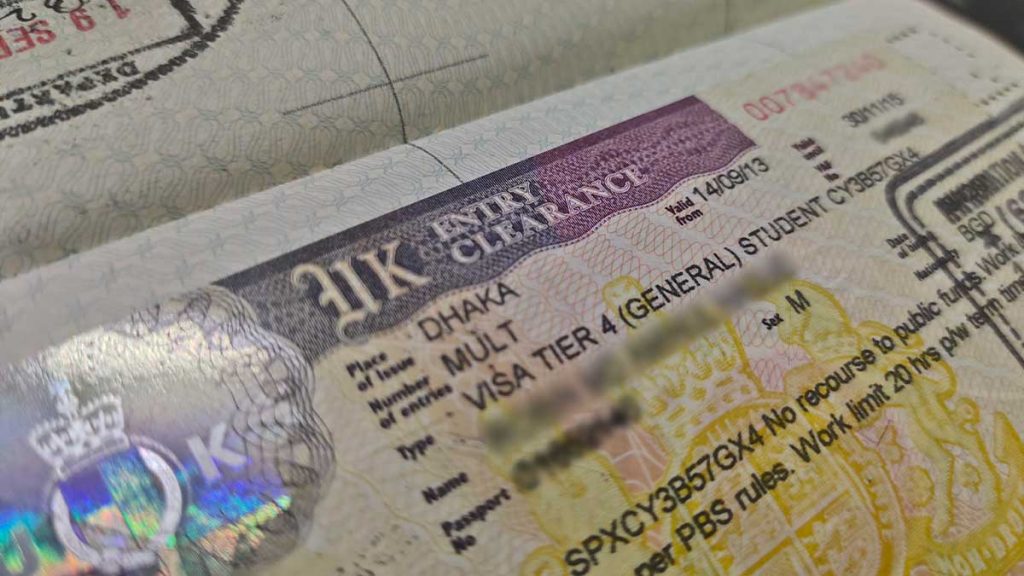BY FRANCISCA CHIEDU
A student visa is seemingly the easiest and fastest route to the UK and leads to a 10-year path to indefinite leave to remain (ILR). Some other routes are faster and cheaper and lead to ILR in 3-5 years. Many people join the japa bandwagon using the student visa route when they have the skills and experience to come to the UK using other visa routes that lead to ILR. Sometimes you try to advise people you know, but they are experiencing the fear of missing out (FOMO). They follow people who are probably clueless about their plans in the UK. They later come back asking you to help when their visa runs out. I will share my experience of trying to help others and the outcome.
Scenario 1: When I moved back to the UK in March 2021, I was generous with information on how I got here with people I know. Once I see you have experience in tech, art, culture, and research, I will tell you about the global talent visa. I was doing busybody, informing people I know may be eligible. I remember in March last year, I spoke to someone who came as a dependant on a student visa that she could potentially apply for the global talent route instead of applying for a two-year graduate visa that doesn’t lead to settlement. She said the graduate visa was cheaper, and they have time. I did the maths and told her global talent is just £608 for a five-year visa while a graduate visa gives two years for £700.
I tried convincing her, but she said she knows much about UK visas. After a while, she stopped responding or picking up my calls. I was unhappy but stopped being a busybody on her matter. Over a year later, she contacted me to say that she needs to apply for the global talent visa immediately as her visa was running out and she needed my help. I wasn’t sure what help she needed. First, you need evidence to apply, requiring you to ask for recommendations and reference letters. I reminded her how I tried to avoid this situation. Anyway, she wasn’t eligible so she went for a graduate visa. I have met other people who think they can read and write; they know better only to come back after wasting time and money.
Advertisement
Scenario 2: My sister’s friend asked me to help her review her statement for a Masters programme in the UK. I read through her statement. I noticed she applied for a tech-related Masters. I know her as a creative writer as she has previously asked me to review her applications for opportunities in the arts. So I wondered why she wants to do an MSc in AI and pay high fees at a London University. So I asked if she had a tech background. It turned out that she studied Computer Science and works as a software developer. I was thrilled. I told her to suspend her plan to migrate to the UK, and I offered to work with her on her global talent visa application. She listened!
I sent her the Tech Nation visa guide, and she said she had gone through it but she didn’t think she was qualified. I told her I believed we just need to set up a strategy session and have a checklist of what she needed to apply. If you read the TN visa guide, you will think the UK is looking for Elon Murk or Mark Zuckerberg. It doesn’t help that they describe typical applicants using the words “exceptional talent” and “exceptional promise”. If in a positive sense, you think highly of yourself, you will see beyond the requirement and think about which of your experiences make you eligible. Still, those with impostor syndrome often think they are not qualified for a global talent visa.
So we had a strategy session and at the end, we had a spreadsheet of the supporting documents she needs to apply for tech nation endorsement, which is stage 1 of the global talent visa. It took us up to three months of meetings and reviewing her applications. She put in the work. She got endorsed, applied for her visa, and got a good job offer in the UK from Nigeria. I am proud of her. She is highly skilled but was open to learning. If she allowed the fear of missing out to make her continue her student visa plans, she probably will be thinking of how to get on a sponsored visa. With global talent, you are not tied to an employer, so you can easily change jobs. This is not the case for Tier 2 work visas.
Advertisement
Scenario 3: My church member contacted me on behalf of someone else interested in migrating to the UK. She recently migrated to Asia when we spoke. Since she works in fintech, I told her to consider applying for a global talent visa. It took us a month to apply for her application. She got the global talent visa. There are people who I told about the global talent visa while they were in Nigeria but still went ahead to spend plenty of money to do a student visa.
Scenario 4: One of my friend’s wives jumped on a student visa while we were still working on their global talent. Since he is someone that I think highly of, when he made himself available, we worked on his application. He got the global talent visa and moved his family to the UK after spending on school fees. I made an exception in his case, but I no longer offer advice to people who insist on coming using the student visa route. I will continue to pray for you to achieve your goals.
If I have previously advised you to apply for global talent and you didn’t take up the offer, I am afraid I don’t have the time to guide you. I will create some time to post about the global talent stage 1 and 2 application process, I will share on my social media platform and follow Kxesca. The UK has a lot of employment opportunities. Since BREXIT, there are more skill shortage areas so do your research and apply for opportunities in these areas. No point in doing a course that has little or no employability value in the UK.
Advertisement
Views expressed by contributors are strictly personal and not of TheCable.
Add a comment






